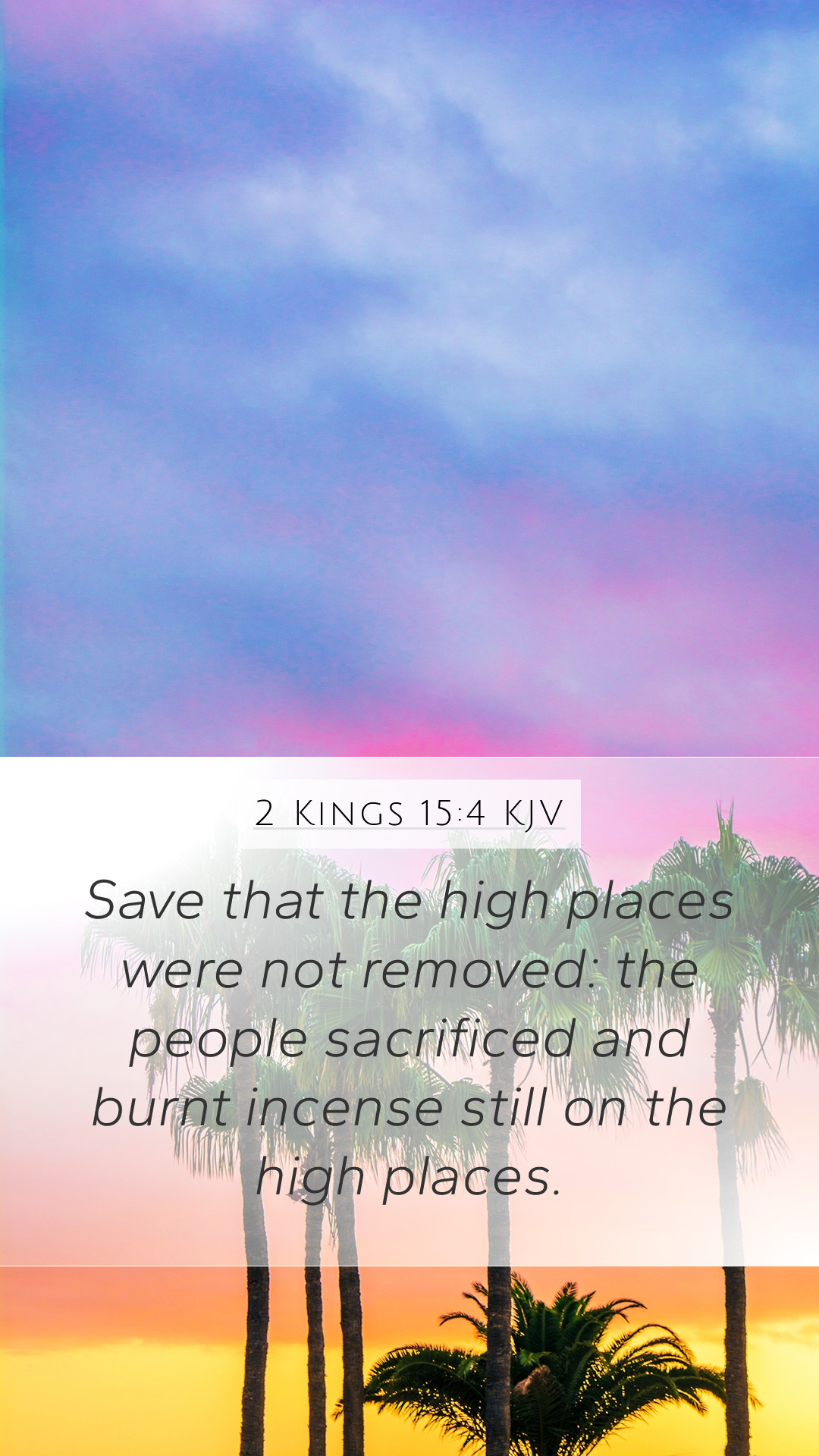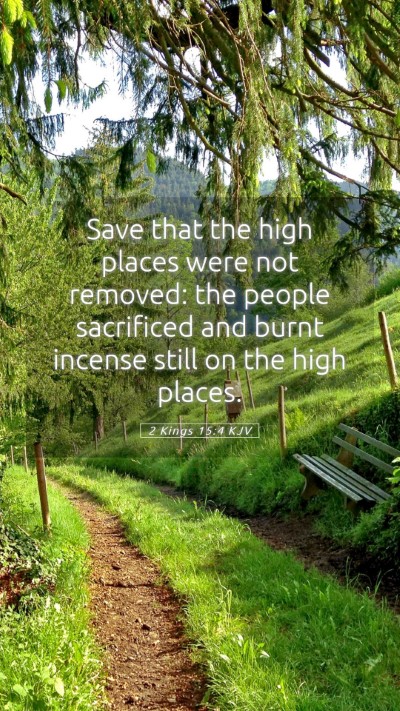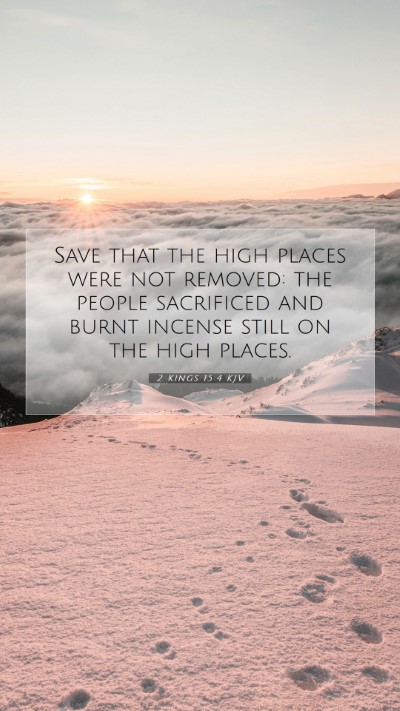Understanding 2 Kings 15:4 - Bible Verse Explanations
This verse, 2 Kings 15:4, serves as a pivotal point in understanding the reign of King Azariah (also known as Uzziah) of Judah. The verse states, "Yet the high places were not taken away: the people sacrificed and burnt incense still in the high places." This simple yet profound statement reflects a significant aspect of worship during his reign and has implications for the spiritual state of Israel at the time.
Key Themes in 2 Kings 15:4
- High Places: The mention of high places signifies locations often associated with idolatrous worship and practices contrary to the strict monotheism that God commanded.
- Spiritual Compromise: The continued existence of high places indicates a compromise in worship, where the people have not fully turned away from these pagan practices.
- Religious Reform: Azariah's reign contrasts with those kings who undertook significant reforms to eliminate idolatry in Judah, thus showing the challenges faced in leading a nation towards true worship.
Bible Verse Commentary
Matthew Henry comments on this verse by highlighting that Azariah, despite his good aspects as a king in following the paths of his father Amaziah, did not remove the high places which stand as a symbol of unfaithfulness to God. This indicates a failure to fully restore true worship amongst the people.
Albert Barnes explains that the high places were places where idolatrous sacrifices were still made, and this reflects the overall condition of Judah's fidelity to God during Azariah's reign. Such behavior was forbidden by earlier commands given through the Law of Moses and signifies a broader disobedience among the people.
Adam Clarke elaborates that the high places were a source of great evil for the Israelites, as they often conducted sacrifices there instead of at the designated temple in Jerusalem. This act of worship in unauthorized places reflects a deep-rooted issue of syncretism that persisted even under good kings.
Historical Context
During the time of Azariah, Judean society was characterized by instability, and the worship practices were influenced by surrounding cultures. Biblical exegesis suggests that the principle of divine honor requires exclusive devotion to God, and the coexistence of high places illustrates a fractured understanding of worship.
Cross References
- 1 Kings 15:14 - Discusses the removal of high places by King Asa.
- 2 Kings 12:3 - Notes that Jehoash did not remove the high places.
- 2 Chronicles 26:1-5 - Details the ascension of Uzziah and his accomplishments.
- Deuteronomy 12:2-4 - Gives God’s command concerning worship at specific places.
- 1 Kings 22:43 - Additional kings' practices regarding high places are noted.
Applying Scripture Analysis
In considering the implications of 2 Kings 15:4, one must reflect on how individual devotion to God may be compromised today.
- Personal High Places: What contemporary 'high places' might believers be engaging with that distract from true worship?
- Community Worship: Consider how church practices align with scriptural commands regarding worship and the community's fidelity to God.
- Spiritual Reform: Reflect on the need for reform in personal and communal worship habits, ensuring they align with biblical commands.
Conclusion
The examination of 2 Kings 15:4 through multiple commentaries reveals a challenging landscape of faithfulness in Judah during Azariah's reign. The significance of the high places remains a potent reminder of how easily worship can become diluted.
To enhance Bible study insights, individuals or groups can utilize tools such as online Bible study resources or engage in discussions that focus on understanding Scripture more deeply, examining not just what specific Bible verses mean, but how they apply to today’s life.


